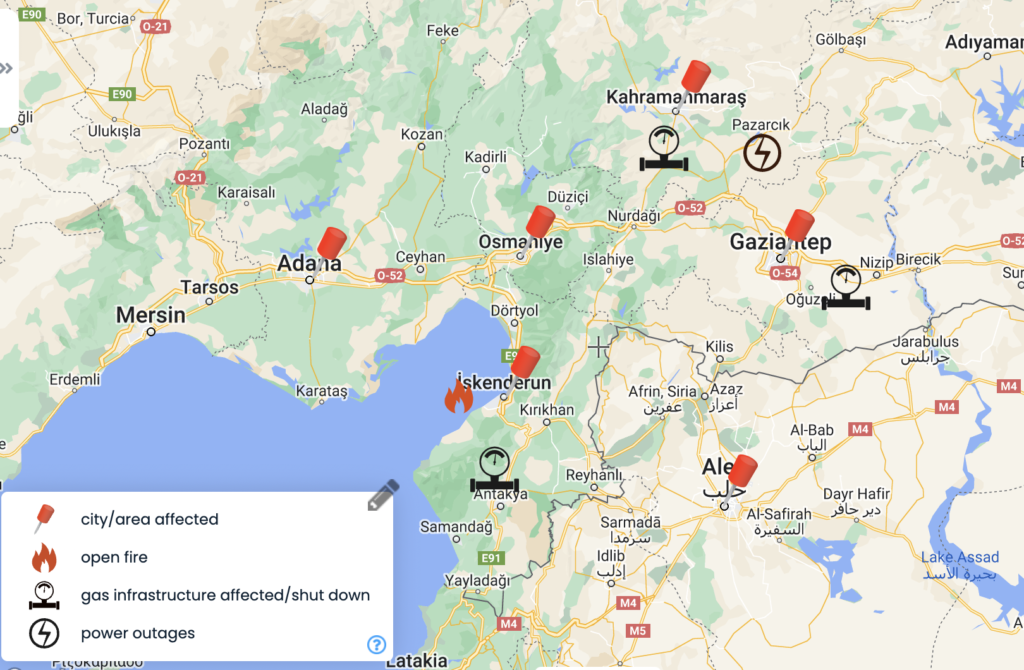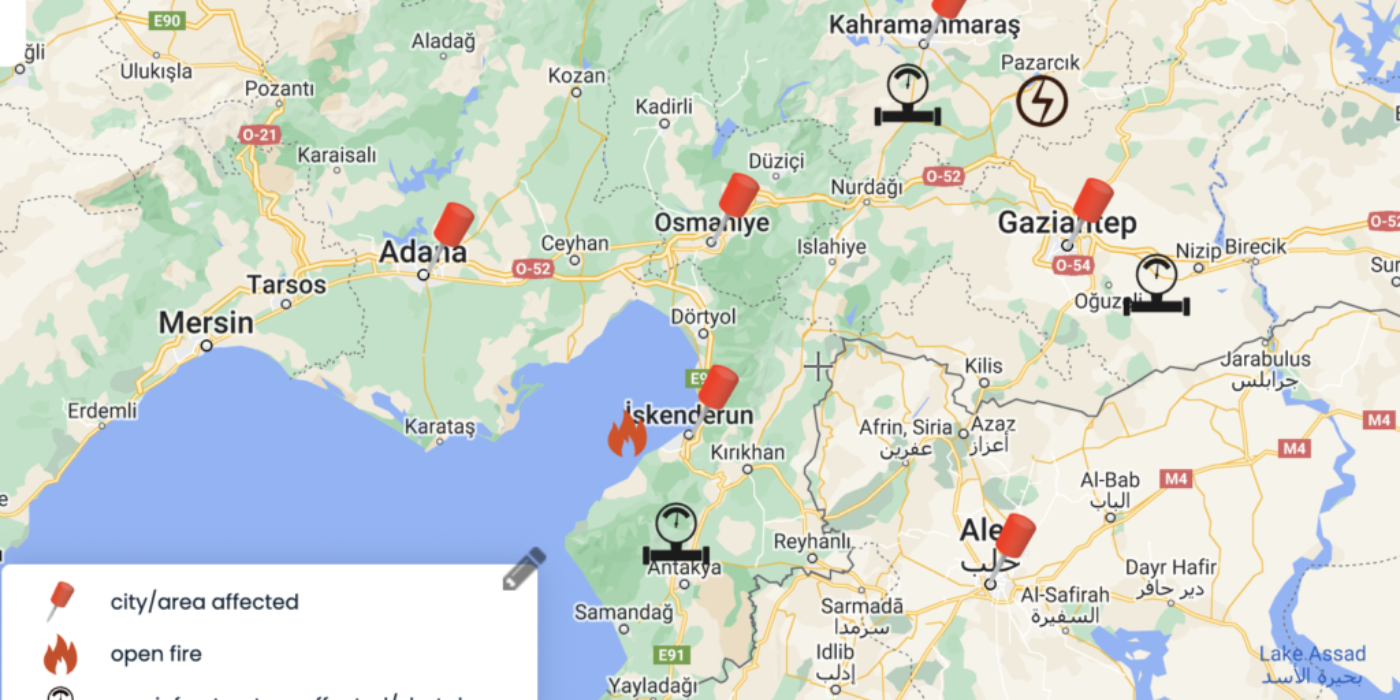My thoughts and prayers with the victims of this unfortunate event.
Natural disasters are random. You can’t predict them. You can’t foresee their effects. But they can be geopolitically important, and they certainly have a geoeconomics dimension.
The 7.8-magnitude earthquake and subsequent aftershocks in Turkey on Monday, Feb. 6, is the strongest quake that has hit the area in more than a few decades (the last similar event was the 1999 earthquake hitting Istanbul and Izmir). Aftershocks continue to hit the region (an updated map with most recent quakes here) and the search mission already has more than 70000 rescuers on the ground and more to come. About 23 million persons have been affected by the earthquake.
Such an event has a vast damaging effect on a country. Considering the devastating human and economic losses, it is likely that the earthquake have major repercussions for Turkey (which also has presidential elections scheduled for May 14).

But besides the effects on the country’s internal politics (and its economy), all natural disasters – from quakes to tsunamis, provide opportunities for diplomatic breakthroughs. The avenues for other countries to expand their ties with the affected country are ways for them to grow their influence in the region. This is what makes natural disasters geopolitically important (will come back to this aspect later – live watch on aid missions available here).
From a geoeconomic perspective, there are several issues to take into consideration:
- The port of Iskenderum was severely damaged by the earthquake and subsequent fires were reported on Feb. 6. The port is no longer functional. Maersk, the world’s biggest shipping company, said on Feb. 7 that it will have to divert all bookings headed for the port and contingency plans are being developed (link). On Feb. 8, fires still burning on the port’s docks (link).
- All infrastructure in the affected areas has been damaged. What remained functional of the infrastructure is heavily used by the rescue teams. There are power outages, natural gas deliveries have been suspended and telecommunications are limited. The Turkish Energy and Natural Resources minister said that the government sent mobile power plants to the region, to supply power and natural gas to hospitals, kitchens and bakeries (link).
- The Turkish Government ordered a shutdown of the Ceyhan oil export terminal on the Mediterranean coast. However, Turkey’s oil pipelines—Kirkuk-Ceyhan and Balku-Tbilisi-Ceyhan—were undamaged. The Kurdistan Regional Government said it had suspended flows along the Kirkuk-Ceyhan pipeline (which transports 450,000 barrels of crude daily). Delays to operations at the Ceyhan oil terminal could have an effect on the oil market, depending on how much time it will take for the terminal to resume normal operations.
- The region is home to metallurgical plants. The steel mills in Iskenderum have closed down and, even if they escaped major damage, it is unclear when they will resume operations. In particular, the market is expecting disruptions to Turkish scrap exports (link). Scrap metal is used in construction, which means that if delays will take longer than weeks, it is likely that they, too, become a source of inflation (first for the local market and then an influencer on the global steel price and global inflation).
- While human loses are extremely high, the economic damage is yet unclear. However, it is expected that the earthquake will have an effect on insurers and reinsurers exposed to the Turkish market. In Turkey, compulsory earthquake insurance is offered to the public via a catastrophe insurance pool, which has a claims-paying capacity of nearly $2.5 billion (based on 2021 base – no details on 2022 renewal base have been released yet). If the structure remains similar to previous years, the Munich Re and Swiss Re would have the biggest shares of the pool’s reinsurance tower. If losses will exceed the $1 billion level (which seems likely) some of the losses will flow through to reinsurers (link).
It is yet early to assess the impact of the earthquake on Turkish economy, its specific sectors, and how this ties into the global economy. However, this is one other layer that needs to be monitored, considering the implications above.
A map to keep in mind – Oil and Gas infrastructure




